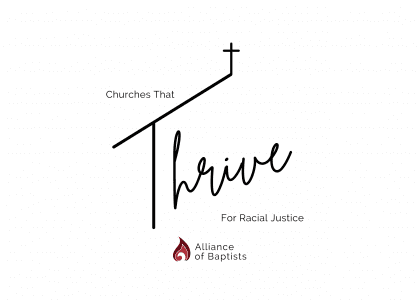By Andrew Gardner
Last month, the Florida Department of Education released new standards for teaching African American history in public schools that sparked outrage across the country. Social Studies standard two, benchmark three, for middle schoolers grades 6-8 offered clarification that instruction should include “how slaves developed skills which, in some instances, could be applied for their personal benefit.”
Governor Ron Desantis, responded to media questions about the curriculum saying “You should talk to [the Florida Department of Education] about it. I didn’t do it. I wasn’t involved in it.”
Later two Black members of the committee that drafted the standards, William B. Allen and Frances Presley Rice, issued a statement doubling down on the curricular clarification. They suggested the “benefit” experienced by some slaves was “factual and well documented.”
Condemnations of the curriculum were swiftly issued by the NAACP as well as the Florida Education Association (FEA), the state’s largest association of professional employees.
It is easy to see this new curriculum as a direct response to Governor Desantis’ “anti-woke” agenda and the fear that white students will feel bad about themselves when learning history. A similar curricular standard is laid out for high schoolers regarding the many professions slaves held, but it does not clarify for high schoolers that these professions would benefit slaves. Perhaps there was an assumption that middle schoolers were not mature enough to handle learning about slavery without assuring them of a possible “benefit.”
If you read the whole of the curricular standards and remove this clarification, I found it to be a fairly good curriculum. Based upon years of teaching first-year undergraduate students in Florida, I would be excited if students entered my classroom with this curricular knowledge. I imagine that the curriculum would probably teach almost any American (including myself) about at least a handful of individuals and events they did not already know if not quite a bit more than they already knew.
And yes, there are other problems with the standards. For instance, high schoolers are to learn about violence committed against and by African Americans following the period of Reconstruction. Violence committed by African Americans is unclear here, as the standards do not lay out any examples or clarify what they mean. It’s also more focused on general knowledge rather than nuanced concepts and theoretical frameworks. This is in line with my own experience of public high school education.
Even so, just as a single gallon of oil can contaminate up to one million gallons of water, this single clarification regarding a supposed “benefit” Black Americans may have received from slavery contaminates the entire curriculum.
Words matter. Enslaved people did not “benefit” from slavery. Enslaved Africans arrived on North American shores already skilled. For individuals born enslaved, yes, some did leverage skills to earn money and purchase their freedom, as was the case with Baptist Lott Cary. To suggest this was a “benefit” of slavery, presumes these persons would have never cultivated skills while free. As many commentators have expressed, slavery was not a jobs program.
In their defense of the curriculum, Allen and Rice contend, “Any attempt to reduce slaves to just victims of oppression fails to recognize their strength, courage and resiliency during a difficult time in American history. Florida students deserve to learn how slaves took advantage of whatever circumstances they were in to benefit themselves and the community of African descendants.”
Such a defense fails to understand what history is. History is not a static thing. I would even argue, history is not “factual and well documented.” History is a discipline, and historians make arguments.
Historians of slavery in the United States over the past century have argued back and forth about how to understand the institution of slavery. How do you write about the oppressive and dehumanizing institution of chattel slavery while at the same time acknowledging the agency and humanity of enslaved people? How do you write about the agency of enslaved people while at the same time acknowledging the oppressive and dehumanizing institution of chattel slavery?
Allen and Rice acknowledge this challenging balancing act but make a bad argument.
Words matter. Enslaved people did not “benefit” from slavery. Enslaved Africans arrived on North American shores already skilled. For individuals born enslaved, yes, some did leverage skills to earn money and purchase their freedom, as was the case with Baptist Lott Cary. To suggest this was a “benefit” of slavery, presumes these persons would have never cultivated skills while free. As many commentators have expressed, slavery was not a jobs program.
As this school year begins amidst an uproar of curricular agitation, Florida’s new curriculum reminds us to stay vigilant and persistent in our commitment to education rooted in open inquiry and responsible scholarship. We must resist turning education into a political cudgel and instead cultivate students who desire to be life-long learners.
As churches and members of the body of Christ, may we support our systems of education by bearing witness to the sins of the past that all too often continue to be perpetuated in the reality of the present.
As we in the Alliance continue to seek to better understand our own history and complicity with systems of racism and white supremacy, may we remember that words matter and our historical understanding is always in process.

Andrew Gardner serves as a lecturer of religious studies at LaGrange College in LaGrange, Georgia. He is the author of Binkley: A Congregational History and Reimagining Zion: A History of the Alliance of Baptists.




Recent Comments